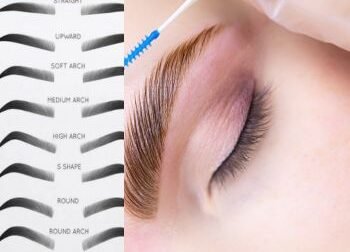Face Cleanser vs. Face Wash: Understanding the Key Differences
- August 12, 2024
- Uncategorized
- 8 mins read
Face Cleanser vs. Face Wash: Understanding the Key Differences
In the world of skincare, choosing the right products can make all the difference in achieving a healthy and radiant complexion. Two essential products in any skincare routine are face cleansers and face washes. While they may seem similar, understanding the difference between face cleanser and face wash is crucial for tailoring your routine to meet your skin’s unique needs. In this blog, we’ll delve into the key differences between these two products and help you determine which one is best for you.
What is a Face Cleanser?
A face cleanser is formulated to remove impurities, makeup, and excess oils from the skin. It’s designed to be gentle and effective, often incorporating hydrating ingredients that soothe and nourish the skin while cleansing. Understanding the difference between face cleanser and face wash is essential for choosing the right product. The primary goal of a face cleanser is to leave your skin feeling clean, balanced, and ready for the next steps in your skincare routine.
What is a Face Wash?
A face wash, on the other hand, is typically more geared towards deep cleaning and is often formulated with stronger cleansing agents. Understanding the difference between face cleanser and face wash is key here, as face washes are ideal for individuals with oily or acne-prone skin. They help remove excess sebum and unclog pores. Face washes are usually foam-based or gel-based, providing a thorough cleanse that can leave the skin feeling refreshed and invigorated.
Key Differences Between Face Cleanser and Face Wash
Understanding the difference between face cleanser and face wash involves recognizing their distinct purposes and formulations. Here’s a breakdown of the key differences:
- Formulation: The difference between face cleanser and face wash is evident in their formulations. Face cleansers are often creamy or oil-based, designed to hydrate and soothe the skin. They may contain emollients and moisturizing agents to prevent stripping the skin of its natural oils. In contrast, face washes are usually formulated with more aggressive cleansing agents like sulfates or surfactants to thoroughly cleanse and degrease the skin.
- Texture and Consistency: The texture of a face cleanser can range from cream to oil to micellar water, depending on the formulation. Face washes, on the other hand, are often gel-based or foam-based, providing a bubbly lather that helps lift away impurities.
- Purpose: While both products aim to cleanse the skin, the difference between face cleanser and face wash lies in their specific benefits. Face cleansers are often used for their hydrating and soothing properties, making them great for dry or sensitive skin types. In contrast, face washes are better suited for deep cleaning, particularly for those with oily or acne-prone skin who need to manage excess oil and breakouts.
- Application: Face cleansers are typically applied to dry skin and massaged in before being rinsed off. This method highlights the difference between face cleanser and face wash by allowing the cleanser to break down makeup and impurities effectively. In contrast, face washes are usually applied to wet skin, lathered up, and then rinsed off to remove dirt and oil.
- Suitability for Skin Types: The difference between face cleanser and face wash is also evident in their suitability for different skin types. Face cleansers are often recommended for normal to dry skin due to their gentle, hydrating properties. On the other hand, face washes are ideal for oily or acne-prone skin because they can help control excess oil and prevent breakouts.

Choosing the Right Product for Your Skin Type
When deciding between a face cleanser and a face wash, consider your skin type and concerns. Here are some tips to help you choose the right product:
- Dry Skin: If you have dry skin, a face cleanser is usually the better option. Look for a creamy or oil-based cleanser that will cleanse without stripping your skin of its natural moisture.
- Oily Skin: For those with oily or acne-prone skin, understanding the difference between face cleanser and face wash is crucial. A face wash with foaming or gel-based properties can be more effective. These products help to remove excess oil and prevent clogged pores.
- Sensitive Skin: If you have sensitive skin, opt for a gentle face cleanser that is free of harsh chemicals and fragrances. Look for products that are hypoallergenic and designed to soothe and calm the skin.
- Combination Skin: Those with combination skin may benefit from using both a face cleanser and a face wash. You might choose a gentle cleanser for daily use and a more targeted face wash for areas prone to excess oil or breakouts.
How to Use a Face Cleanser and Face Wash
To maximize the benefits of your chosen product, proper application is key. Here’s how to use a face cleanser and face wash effectively:
- Face Cleanser: Apply a small amount of cleanser to dry or slightly damp skin. Gently massage the product in circular motions to break down makeup and impurities. Rinse thoroughly with lukewarm water and follow up with your regular skincare routine.
- Face Wash: Wet your face with lukewarm water. Apply a generous amount of face wash to your hands and work it into a lather. Understanding the difference between face cleanser and face wash can guide you in choosing the right technique for your needs. Massage the lather into your skin in circular motions, focusing on areas that tend to be oily or congested. Rinse thoroughly and pat your face dry with a clean towel.
Conclusion: Face Cleanser vs. Face Wash
Understanding the difference between face cleanser and face wash is essential for maintaining a healthy and effective skincare routine. While both products serve the purpose of cleansing, their formulations, textures, and suitability for different skin types can vary significantly. By choosing the right product based on your skin type and needs, you can ensure that your skin remains clean, balanced, and well-nourished.
Whether you opt for a gentle face cleanser or a deep-cleansing face wash, understanding the difference between face cleanser and face wash can make a noticeable difference in your skin’s health and appearance. Integrating the right product into your routine is crucial, so take the time to evaluate your skin’s needs and select the product that aligns best with your skincare goals.
The main difference between a face cleanser and a face wash lies in their formulations and purposes. Face cleansers are typically more hydrating and soothing, suitable for dry or sensitive skin. Face washes are designed for deeper cleansing, often targeting excess oil and impurities, making them ideal for oily or acne-prone skin.
Yes, you can use both a face cleanser and a face wash in your skincare routine. For example, you might use a face cleanser in the morning to gently clean and hydrate your skin and a face wash in the evening to thoroughly remove makeup and excess oil.
It’s generally recommended to use a face cleanser or face wash twice daily—once in the morning and once at night. However, if you have very sensitive skin, you might opt for using these products only once a day or as needed.
While a face wash can cleanse your skin, it may not offer the same hydrating benefits as a face cleanser. If your skin is dry or sensitive, relying solely on a face wash might lead to dryness or irritation. It’s best to choose a product that suits your skin’s needs.
Yes, there are face cleansers and face washes formulated for various skin types. For dry skin, look for creamy or oil-based cleansers. For oily or acne-prone skin, gel-based or foaming face washes are often recommended.
Consider your skin type and concerns when choosing between a face cleanser and a face wash. For dry or sensitive skin, opt for a gentle, hydrating face cleanser. For oily or acne-prone skin, a face wash with strong cleansing properties might be more effective.
Yes, many face cleansers are designed to effectively remove makeup along with impurities. If you’re using a face wash, you might need a separate makeup remover or cleansing oil to ensure all makeup is thoroughly removed.
Face cleansers help remove impurities and makeup while providing additional benefits such as hydration and soothing. They are often enriched with moisturizing ingredients that can help maintain the skin’s natural moisture balance.
Using a toner after cleansing can be beneficial as it helps to remove any remaining impurities, balance the skin’s pH, and prepare the skin for the next steps in your skincare routine. However, it’s not strictly necessary and depends on your skincare routine.
Yes, some face washes, particularly those with strong cleansing agents, can be harsh and strip the skin of its natural oils. If you experience dryness or irritation, consider switching to a gentler face wash or using a face cleanser instead.



